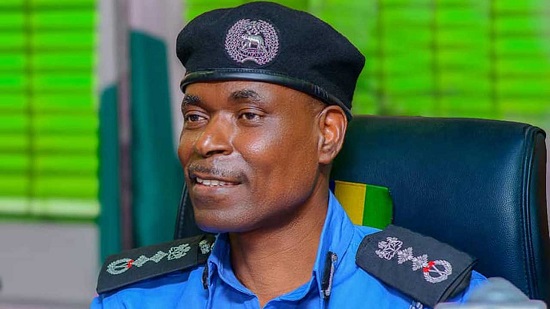This post has already been read 1386 times!
IF any institution needs massive moral enhancement at this time, it is the Nigeria police, which is still devastated in all departments, from the aftermath of #EndSARS protest countrywide. Therefore, the promise of support to the police, offered by the Coalition Against COVID-19 (CACOVID) should be appreciated. Similarly, the recent approval of promotions for thousands of junior police officers is a step in the right direction. But the police need a far deeper re-orientation of their operations and relationship with the public, if the problems that led to the protest are to be prevented from recurring.
A coalition formed by the Central Bank of Nigeria (CBN) in collaboration with the Bankers Committee and the private sector led by Aliko Dangote Foundation and Access Bank, CACOVID is to rebuild 44 police stations that were damaged during the EndSARS protest country-wide. The decision, according to CBN Governor Godwin Emefiele, is part of the group’s contributions towards modernising the NPF and strengthening the nation’s security apparatus. Hopefully, the move will help remove some of the #EndSARS hang-over.
While the police are gradually getting back to grips with their duty of protecting lives and property of Nigerians, they need to move more rapidly and decisively, failing which criminals will take charge. That situation will be unhealthy and will do the police image no good. After all, the police have not been disbanded. This in fact, is an appropriate time for them to re-invent and reposition to international police best practice.
To make this happen, the Inspector General of Police, Mohammed Adamu, must acknowledge that the current force is depleted, ill-structured, ill-equipped and ill-motivated to counter criminal activities. While it is true that banditry, kidnapping, murder, cultism and other heinous crimes have been on the country’s front burner long before EndSARS, their rising incidence will inevitably be linked with the present lull in police activities; and will call to question the relevance of the institution as presently constituted.
The IGP’s first step in approving the promotion of 82,779 junior officers to their next ranks is commendable, even if trifling, as a bid to boost morale, and reposition the police for greater efficiency. Though a swift response to the disenchantment of officers over the attack and killing of their colleagues, it sharply contrasts with the tendentious statement of the IGP calling on police officers to use force in defending themselves. Such gestures are recognisable as ad-hoc remedy to address immediate problems but they often end up as the final solution to deep-rooted problems requiring holistic re-organisation.
In the aftermath of the initial peaceful protests, hoodlums destroyed scores of police stations in major cities of the country, killing about 22 and injuring nearly a hundred officers. Violence directed at police officers is unjustified and criminal, because like all law-abiding Nigerians, officers of the law are entitled to the protection of the state.
Sadly, the police force seems to be carrying out its own protest by withholding or withdrawing their service. Already fracas that occurred in some cities, including the violent protest of some commercial motorcycle transporters in parts of Lagos recently, reflected the absence of little or no policing. For the police to withhold its services as a protest over casualty it suffered from protesting youth is unacceptable, unethical and amounts to culpable negligence. As a state auxiliary, police service is an occupation of prestige and power, as the police symbolises security and law enforcement capacity of the state. The manner police services department of a country is treated reflects the force prestige in that country.
Nevertheless, police officers should not see themselves as tin-gods over the people. The erstwhile colonial notion of the police as a privileged arm-carrying force established to protect the powerful minority from the amorphous masses has been invalidated by current evolution of civil rights and social responsibility. Refusing to discharge their duties as respectfully required by law is not only self-defeatist but also a counter-productive reaction. It robs police officers of the dignity of a professional identity and puts them in harm’s way just as all other security-deprived Nigerians.
If any sense could be made of that order, it is the inexorable fact that the police force is vulnerable, technically incapacitated and morally deficient. This, for them should provide invaluable lessons to learn, including the wisdom in acting proactively and decisively against an impending issue that can cause public disenchantment and disorder.
The EndSARS movement is a typical example of criminal neglect by the police. Nearly three years ago when Prof. Yemi Osinbajo as Acting President ordered the Inspector General of Police to “overhaul” the controversial police unit called the Special Anti-Robbery Squad (SARS) and directed the National Human Rights Commission to investigate allegations of rights abuse by the unit, the police carried out a whitewash that made a mockery of that presidential directive. At that time, it was the fourth directive that the presidency had given to overhaul SARS. The result is the prevailing ugly situation in the country.
Like other critical sectors in the country, the police need a more holistic approach for their reform. This will include more funding, more adequate equipment, improved quality of service and high quality human resources and succession management, all deployed in a manner that ensures diligent law enforcement and internal security provision. Officers should be tested regularly for their fitness – morally, physiologically and psychologically to match public requirement of policing.
Ultimately, there is no visible alternative to restructuring the police in tandem with a restructured Nigeria that will enable each state to take full control of its security and manage its resources.



